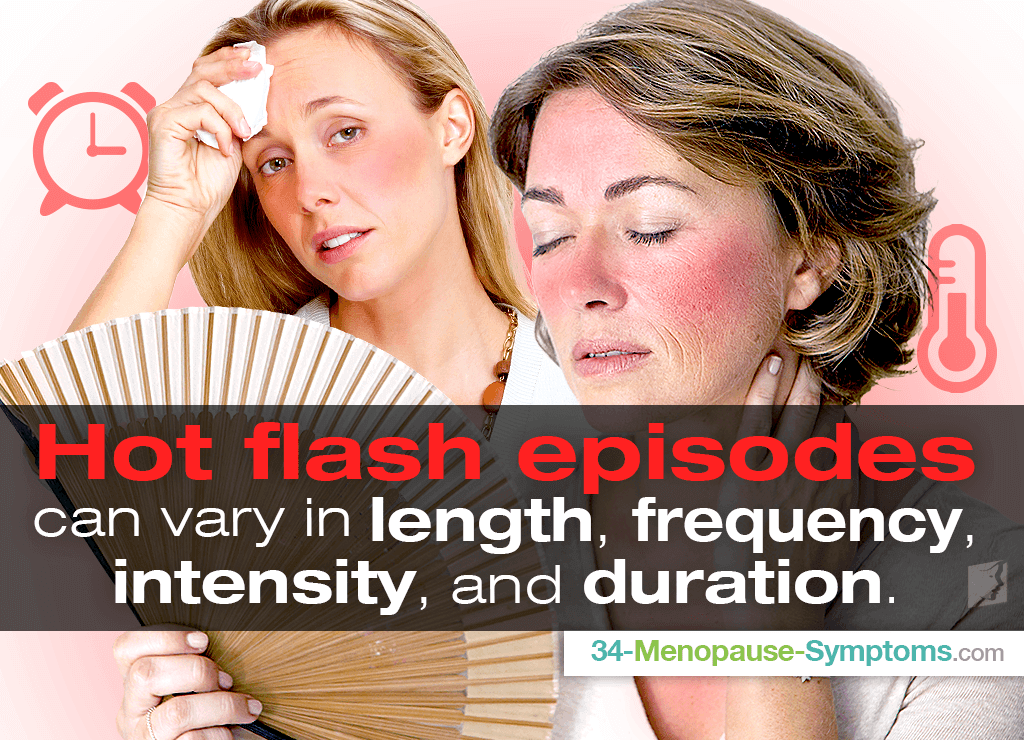Hot flashes are characterized by a sudden sensation of extreme heat spreading through the body, particularly across the face, neck, and chest. Although the frequency and severity of them usually lessens with age, some women can find that this symptom persists from perimenopause into postmenopause.
Continue reading to learn more about hot flashes during perimenopause, including what causes hot flashes during menopause and various prevention and treatment options.
What Causes Hot Flashes During Menopause?
The exact cause of hot flashes remains unknown.
However, during the menopausal transition, the sensation is thought to be linked to decreased estrogen levels in the body, which negatively affect the hypothalamus, the part of the brain that regulates body temperature. If and when the hypothalamus mistakenly perceives that the body is too hot, it tries to cool it down, and the result is what women experience as a hot flash.
When Do Hot Flashes Most Commonly Occur?
Hot flashes can occur at any time of the day. When they are experienced throughout the night and cause women to wake, drenched in sweat, they are referred to as night sweats. Furthermore, because hot flash episodes often vary in severity and frequency, some women can continue with everyday activities while others suffer throughout their normal routine.
How Long Do Hot Flashes Last?
Hot flash episodes can vary in length, frequency, intensity, and duration. A single hot flash can last from one to five minutes or more. When severe, a woman can suffer from them several times an hour.
Also, new research suggests that hot flashes plague women's lives for, on average, seven to 11 years. Women who had their first hot flashes during perimenopause had the symptom for around nine to 10 years. On the other hand, those whose hot flashes began in postmenopause suffered from them for only about three and a half years.
How Can Hot Flash Episodes Be Prevented?
There is no surefire way to prevent the occurrence of hot flashes. However, there are a number of ways in which women can try to decrease their frequency, including:
- Maintaining a healthy body weight
- Eating a balanced diet rich in phytoestrogens
- Exercising regularly to help balance hormones and boost your mood
- Avoiding triggers, like alcohol, spicy foods, caffeine, and smoking
Making these small lifestyle changes can help many women find relief from their hot flashes during menopause, but the most effective way to handle hot flashes is by directly treating the underlying cause of hormonal imbalance.
Accordingly, there are various hot flash treatments available. Increased effectiveness occurs when women implement the use of alternative medicines - phytoestrogenic and hormone-regulating supplements - or prescription medications along with lifestyle adjustments. Rest assured that with proper vigilance, it is possible to go back to living a hot flash-free life.
Sources
- Harvard Health Publishing. (2015). Menopause-related hot flashes and night sweats can last for years. Retrieved October 25, 2018, from https://www.health.harvard.edu/blog/menopause-related-hot-flashes-night-sweats-can-last-years-201502237745
- Mayo Clinic. (2018). Hot flashes: Symptoms & causes. retrieved October 25, 2018, from https://www.mayoclinic.org/diseases-conditions/hot-flashes/symptoms-causes/syc-20352790
- Sikon, A. & Thacker, H.L. (2014). Treatment for Menopausal Hot Flashes. Cleveland Clinic Journal of Medicine, 71(7), 578-582. Retrieved October 25, 2018, from https://www.mdedge.com/sites/default/files/issues/articles/content_71_578.pdf




